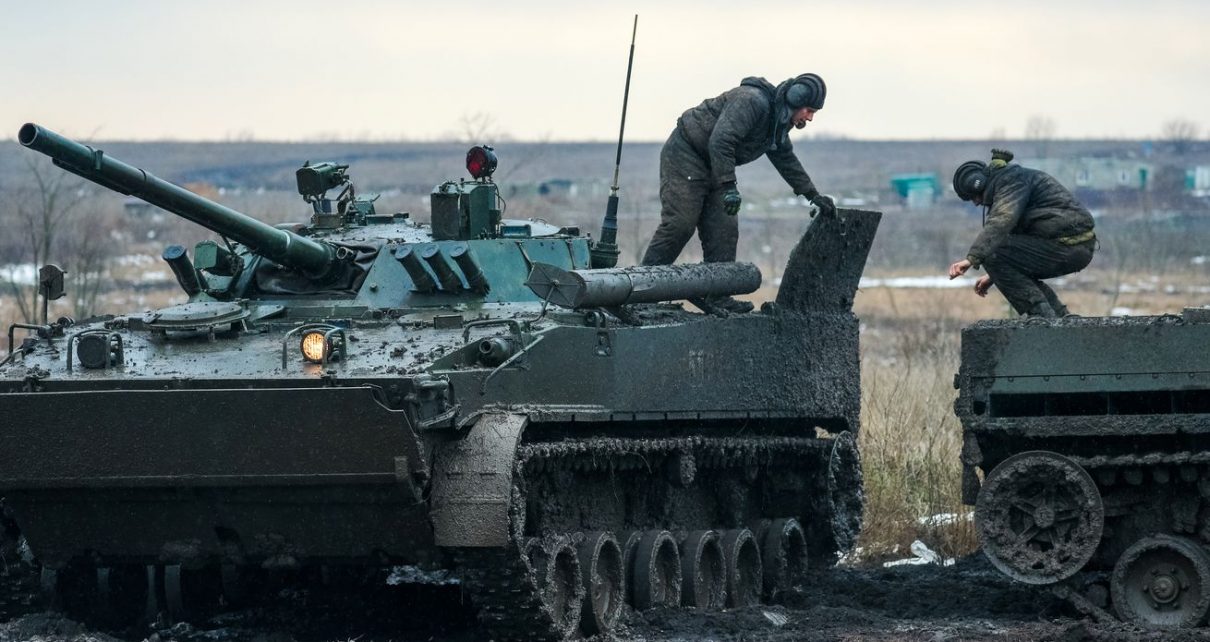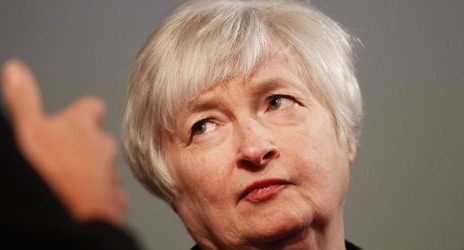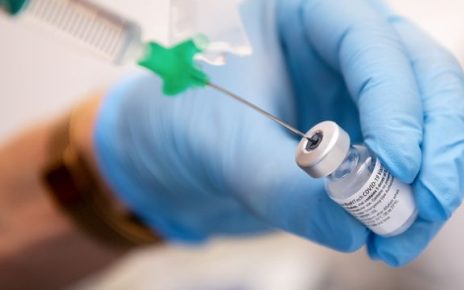
According to Mark Galeotti, Putin wants to cement his place in history by restoring Russian control over its neighbor.
Since December, the biggest question facing foreign policymakers in the US and Europe has been as simple as it has been hard to really believe: Is Russia going to invade Ukraine?
Russian President Vladimir Putin has ordered massive numbers of troops, tanks, artillery, and more to the border with Ukraine, as well as in Crimea (a region that Russia seized from Ukraine in 2014) and in Belarus (a close ally of Russia and northern neighbor of Ukraine). He has also issued demands that Ukraine not be admitted into NATO, and that NATO not deploy forces to member states close to Russia like Poland and the Baltic states. These are bold demands that some view as designed for Ukraine and the West to reject, allowing Putin to claim that diplomacy has failed and an invasion is necessary.
For the moment, though, diplomatic efforts between the US, EU members, Ukraine, and Russia continue, and some experts are more optimistic that the situation can resolve without what could be Europe’s first major land war in decades. One of them is Mark Galeotti, director of Mayak Intelligence, a professor at University College London, and an expert on Russian security affairs. We spoke on Zoom recently for an episode of Vox’s podcast The Weeds. A transcript, heavily truncated and edited for length and clarity, follows.
Dylan Matthews
Let’s start with the actual situation on the ground right now. What has Russia been doing in recent months militarily? Is what it’s doing now different from things that it’s done in the past?
Mark Galeotti
It is different. What we’ve seen is a pretty huge buildup of materiel around Ukraine’s borders.
First of all, it’s a lot more than we’ve seen in the past. There was another big buildup last spring. This time, though, it’s much more substantial.
There are people talking about 120,000, 130,000 troops. That’s not entirely accurate. There are a lot of troops there, but also the kit for these troops. It’s the tanks, it’s the armored fighting vehicles, and so forth. So you might say it’s the skeleton of a force of 130,000.
Also what we’ve seen that is different from past such buildups is what you might call “the backup.” Soldiers talk about “the teeth and the tail.” Last [spring] it was essentially all teeth, no tail. So yes, it was all very scary, there were tanks and guns there.
But there weren’t the field hospitals. There weren’t the fuel bowsers, the big stocks of ammunition, all the stuff that you actually need to have a real offensive. This time they have all that, which means either they are absolutely planning for a definite military operation, or they might plan military operation, and they’re giving themselves the option. Or they realized that when they tried to bluff the last time, people pointed to the lack of all this backup and said, “Ah ha, that’s why it’s a bluff,” and they are just making damn sure that this time it’s going to be a really good bluff.
Dylan Matthews
Why is Putin doing this? What is in it for Russia in a military invasion of Ukraine — or, alternately, a feint of a military invasion of Ukraine that is sufficiently serious that people have to respond to it?
Mark Galeotti
The thing is, we’re not talking about Russia. If you look at the opinion polls, Russians themselves have no enthusiasm for any kind of a war.
Crimea was a particular chunk of territory that pretty much every Russian, whether they love or hate Putin, thought was rightfully Russian. It was Russian until the 1950s when it was transferred to Ukrainian control. But that was a one-off. Everyone thought that [annexing Crimea] was right and proper. Frankly, most Crimeans actually genuinely wanted to become part of Russia.
/cdn.vox-cdn.com/uploads/chorus_asset/file/23219104/GettyImages_931885040.jpg) Yuri Kadobnov/AFP via Getty Images
Yuri Kadobnov/AFP via Getty ImagesThis is totally different. Donbas [the eastern region of Ukraine where Russia is backing separatist militias] isn’t special for them. Instead, they do see the Ukrainians as their … I don’t know … cousins, part of the family. And the idea of seeing Ukrainian cities burn is really not something that people are enthusiastic about.
So it’s not about Russia. It’s about Putin. And it’s about this small circle of people around him who dominate this country. If you look at them, they are essentially the last gasp of Soviet elites, the people who didn’t just have their early childhood education in the Soviet times, but also their early career experiences. They were made. They thought they knew the way their life was going to be. And then all of a sudden the whole thing collapsed.
And the end of empire is hard. I mean, one can question whether Britain’s really fully internalized the end of empire after, what, 50 odd years. France likewise, and probably soon enough, America is going to have to go through this and in a different way. We shouldn’t be surprised that it’s difficult, but the trouble is for this particular generation, these increasingly paranoid old men, it’s metastasized from “what have we lost?” to “who took it from us?”
These are people who genuinely believe the West is hostile, who genuinely believe that the West is denying Russia its proper place in the world, that it’s trying to hold Russia down and trying to undermine the regime. When we support, for example, anti-corruption activists like the opposition leader Alexei Navalny, who Putin had poisoned and then put in prison, they don’t see that as us standing up for what we think of as natural human rights. They see that as a sign that the West is trying to use [the situation] to undermine the regime.
And let’s be honest, when you are a corrupt kleptocratic authoritarian, then support for anti-corruption activists, support for a free press — all of that does subvert the regime. So they see themselves as defending Russia.
When it comes to Ukraine, look, Putin is a product of his era. He doesn’t really think that Ukraine is a different country. Of course it can’t go. But he’s still got this old Cold War mentality that if it’s lost to [Russia], it’s gained by the others. He’s worried about the thought of NATO’s forces being based in Ukraine, of NATO’s missiles. He talks about missiles near the [Ukrainian] city of Kharkiv that could hit Moscow in five minutes.
In reality, these are very, very implausible scenarios. But the point is, this is a view of a bunch of old men who can’t quite get over the fact that they’re no longer running a superpower, and who also are increasingly surrounded by people who tell them what they want to hear. One of the scary things about the Putin system is that Putin himself is a rational actor. He’s a rational human being — not a nice one, but a rational one. But the trouble is, if what he’s being told is misleading and inaccurate, he can make some really stupid and dangerous decisions, even while being rational about it.
/cdn.vox-cdn.com/uploads/chorus_asset/file/23219199/GettyImages_1238078921.jpg) Sergei Supinsky/AFP via Getty Images
Sergei Supinsky/AFP via Getty ImagesA final point is we know that Putin is obsessed with his historical legacy. History is one of the few things he reads. When he meets historians, he asks them, “How are they going to be writing about me in 100 years time?” Which, first of all, what a deeply uncomfortable question to be asked by the despots of your country, a man who has people poisoned or put in prison! But secondly, it gives us a sense of where his head is at.
I think from his point of view, you know, he’s 69. He can rule for only some years to come politically, but he’s probably getting old and he’s getting tired. It’s fairly obvious that he is tired and bored with much of the job. The last thing he wants is for his legacy in the history books to be the guy who lost Ukraine, the guy who rolled over and let NATO and the West have their way.
So I think this is also about him feeling this is … I wouldn’t say his last chance, but one of his last chances to stand up for Russia and make sure that Russia asserts its real place in the world, forces the West to acknowledge that and in the process, that’s what gets him into the history books, [so] he’s a chapter rather than just a paragraph.
Dylan Matthews
Where things are today, how likely do you think an actual Russian incursion into Ukrainian territory is?
Mark Galeotti
I’m still optimistic. The military wonks are very pessimistic. They think it’s almost certain that there will be an invasion. The political wonks tend to be much more optimistic. I reckon it’s about 30 percent. It’s absolutely a possibility, but I don’t think [a military escalation is] Putin’s Plan A. It’s his Plan B or his Plan C, if he can’t get what he wants or enough of what he wants by political means, means which include the intimidating presence of a large number of Russian troops and heavy metal on Ukraine’s border.
Dylan Matthews
If Russia is partially doing this to try to extract concessions, what are the kind of concessions they want? Is there a deal that could be made with with Ukraine and with the United States that would satisfy them and avert conflict here?
Mark Galeotti
The only honest answer I could possibly give is, I don’t know.
We’re still trying to divine Putin’s real goals and above all, his appetite for risk. He’s trying to give the impression that he has this very maximalist list of demands. What he wants is Ukraine to be forced into a state of neutrality, which means that it will always be vulnerable to Russia, and guarantees that it’ll never join NATO, even though back in 2009, NATO had promised that Ukraine and Georgia would become members.
Also, he wants NATO basically rolled back to where it was in 1997. Countries which have already become members of NATO [such as Poland, Hungary, and Czechia] would either be kicked out or more likely would become second-class NATO members or something.
My view is that he must know that he’s not going to get that. To some people, that proves that war will definitely happen. But we can reassure Russia without giving away things that we shouldn’t be giving away. We can’t, for example, actually say Ukraine will no longer be allowed to join NATO, even though, if we’re honest, Ukraine is not going to join NATO for at least another decade.
But maybe what we can do is say, “Well, look, it’s going to take time anyway, but we will guarantee that we will not put NATO troops or security architecture on Ukrainian soil. Ukraine might come under the NATO’s umbrella of defense, but in peacetime, at least you’re not going to have to worry about that.”
There’s ways of trying to package things that are actually relatively reasonable. We’re going to have to package them up nicely in really big flowery wrapping paper with a nice silver bow because Putin is going to have to both feel that he’s made some kind of advances and also has to be able to tell his own people that he has triumphed.
/cdn.vox-cdn.com/uploads/chorus_asset/file/23219203/GettyImages_1238095377.jpg) Mikhail Metzel/TASS via Getty Images
Mikhail Metzel/TASS via Getty ImagesDylan Matthews
A deal does seem preferable to war, but I think there’s a fear that we can’t trust Putin. If we offer him a concession, next time he will do a similar ramp up, or attack Georgia again, or otherwise lash out to try to extract additional concessions. Is there a way to avoid it becoming a blackmail cycle, as opposed to a lasting settlement?
Mark Galeotti
It’s a fair point, and I think in some ways the answer is that there is a there is a strange and perverse legalism to Putin. This is a man who absolutely is willing to lie, cheat, blackmail and murder — not personally, but he’ll have people do it.
On the other hand, this is a man who does feel the need to observe the forms. He may rig elections, but he will hold elections. He won’t just simply declare that he will change the constitution to allow him to to stay in power. There will have to be a constitutional process and debates and a referendum and so forth.
It’s interesting that his demand, at the moment, is precisely that he wants pieces of paper. He wants formal written guarantees precisely because he doesn’t trust the West. Well, this gives us the opportunity also to look for full guarantees from Putin.
The honest answer is that actually our leverage on Putin is quite limited. Putin has spent the last seven and a half years turning Russia into as sanction-proof an economy as he can manage. And they’ve done a pretty good job of it. They have massive financial reserves in the West. They made a decision to favor security over economic growth. The Russian economy is pretty stagnant. But on the other hand, it’s also really hard to knock over.
The real thing that we could do that would absolutely devastate the Russian economy is not buy any Russian [natural] gas or oil, which is fine, except that it would mean massive increases in prices and massive shortages, particularly of gas in Europe. It’s winter now. How many people are willing to say I’m perfectly happy for granny to freeze to death so long as I show that nasty Mr. Putin what I think of his policies towards Ukraine?
I think there is a point where we have to be realistic. We can do harm to Putin. Absolutely. And if he escalates, we can and we should. But on the other hand, if he is absolutely willing to take that hit, there’s nothing we can do. The reason why he probably won’t escalate in Ukraine is not so much because of Western sanctions. It’s because the Ukrainians will fight, the Ukrainian military is stronger than it has ever been. The Russians will win, but if they’re going to try and occupy territory and particularly go into cities, you know, they’re going to face a nation up in arms against them.
The Russians would absolutely hate [this parallel], but the only real parallel I can draw is what happened in Ukraine during World War II. The Germans invaded and they faced this massive mobilized Partizan resistance. Well, okay, this is going to be a slightly different war. But nonetheless, that’s the kind of challenge.





